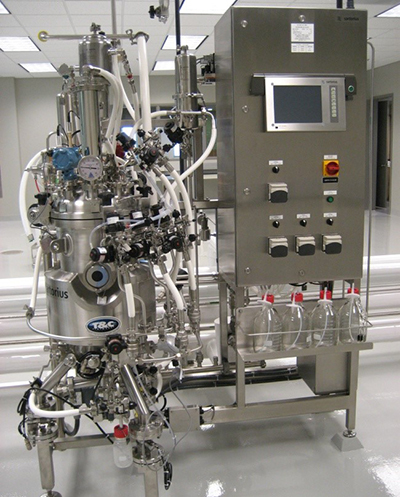Novel System Aims to Improve Biomanufacturing Processes

Researchers at NC State University have developed a novel approach that integrates existing technologies to improve the biomanufacturing processes used to make everything from pharmaceuticals to fuels.

“Our approach, called MIDUS control, allows biomanufacturers to collect data on their products at every stage of the manufacturing process – which offers two significant benefits,” says John Sheppard, a professor of bioprocessing science at NC State and corresponding author of a journal article on the new system. MIDUS control stands for monitoring, integration, data analytics, understanding, strategy design and control.
“First, MIDUS control allows manufacturers to more tightly control the process to ensure the quality of their product – which is enormously important for pharmaceutical manufacturers, among others,” Sheppard says. “Second, MIDUS control gives manufacturers data they can use to further fine-tune their processes to improve quality, yield, and operational efficiency.”
The MIDUS control system relies on near-infrared probes and other sensors to collect data – from glucose levels to temperature – from manufacturing facilities. And, while MIDUS was designed for operations that collect data in real time, it can also incorporate offline data.
Initially, all of this data would be used by a computer model to conduct a principal component analysis (PCA). The PCA identifies correlations that can suggest – but not prove – how variables, such as amino acid levels, affect outcomes, such as bacterial growth.
The MIDUS system uses the PCA, as well as real-time and analytical data from the biomanufacturers to develop correlations – and then uses additional control software to make recommendations to improve the process.
For example, MIDUS may suggest the addition of key chemicals when glucose levels and cell density hit a particular mark.
“MIDUS is not an attempt to replace human expertise,” Sheppard says. “But MIDUS is a valuable technique that can help manufacturers make informed decisions and identify possible improvements that are easy to miss in complex biomanufacturing processes.”
The paper, “Use of near-infrared spectroscopy (NIRs) in the biopharmaceutical industry for real-time determination of critical process parameters and integration of advanced feedback control strategies using MIDUS control,” is published in the December 2017 issue of the Journal of Industrial Microbiology & Biotechnology. Lead author of the paper is Lucas Vann, a former Ph.D. student at NC State and employee of the university’s Biomanufacturing Training and Education Center (BTEC). The work was done with support from BTEC.
- Categories:


